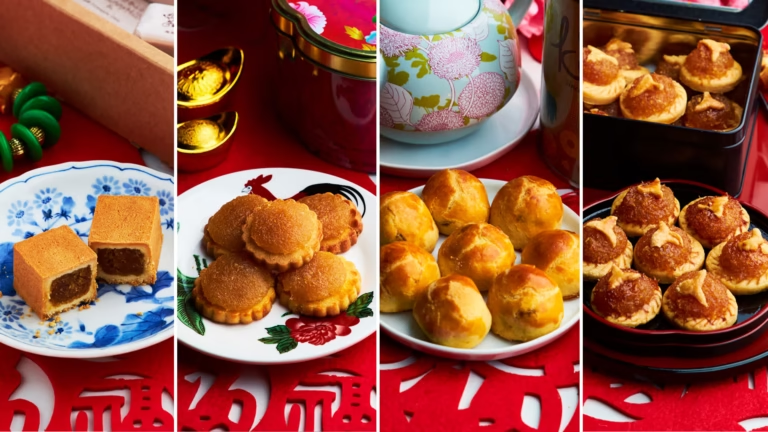From Hawker Stalls to High-End Dining: How Singapore’s Takeaway Scene Is Turning to Sustainable Packaging

Introduction
“Can I get this to go?”—a simple question that has become part of Singapore’s daily rhythm, from busy hawker centres to modern cafés. But as the nation pushes toward its Zero Waste Masterplan 2030, another question has started to matter just as much: What is your takeaway packaging made of?
As local food culture and environmental awareness collide, restaurants are rapidly replacing plastic boxes with eco-friendly takeaway containers. The shift isn’t just about complying with green policies—it’s about meeting a new generation of consumers who expect sustainability with every meal.
Among the leaders driving this change is Bioleader, a global manufacturer of biodegradable and compostable packaging. Their innovation in takeaway containers with lids has caught the attention of food businesses across Singapore for combining functionality, presentation, and planet-friendly design.
The Sustainability Shift: How Takeaway Packaging Evolved in Singapore
Singaporeans love convenience—but not at the cost of their environment. The National Environment Agency (NEA) reports that plastic waste made up 36% of total packaging waste in 2024, yet only 6% was recycled. This has triggered a surge in demand for compostable and biodegradable packaging alternatives.
A recent Straits Times survey showed that 78% of consumers now prefer F&B outlets that use sustainable takeaway containers. The government’s Green Plan 2030 and the upcoming Extended Producer Responsibility (EPR) scheme have only accelerated the transition.
Eco-friendly packaging no longer signals an “eco-niche”—it’s becoming a standard of business ethics. And Bioleader’s sugarcane takeaway containers are one of the clearest examples of how sustainability can be seamlessly integrated into Singapore’s fast-paced dining culture.
What Makes Sugarcane Bagasse Containers Ideal for Singapore
Bagasse—fibrous residue from sugarcane—is a renewable byproduct that can be molded into strong, heat-resistant containers. Instead of burning it (a common agricultural practice in Asia), it’s now transformed into compostable packaging that performs just as well as plastic, minus the waste.
Scientific data highlights bagasse’s environmental superiority:
- 80% lower CO₂ emissions compared to petroleum-based plastic production
- Compostable within 60–90 days in industrial facilities
- Heat-resistant up to 120°C, suitable for hot soups and fried rice
- PFAS-free, ensuring food safety and non-toxicity
These features make sugarcane containers ideal for Singapore’s diverse culinary needs—from laksa to nasi lemak to western-style takeaways—maintaining both integrity and temperature without leaks or sogginess.
Bioleader’s Smart Design for Real Foodservice Challenges
Founded in Xiamen, China, Bioleader has become a trusted manufacturer for global restaurant chains, distributors, and eco-conscious retailers. Its mission: make sustainable packaging practical, not just idealistic.
Key innovations behind Bioleader’s takeaway packaging include:
- Lock-tight lids that prevent spills during delivery, even for oily foods.
- Stackable design for efficient storage and transport—perfect for GrabFood and Deliveroo orders.
- Custom embossing and OEM branding options for restaurants that want eco-friendly packaging with a professional finish.
- Fully certified materials, meeting EN13432, ASTM D6400, TÜV OK Compost, LFGB, and FDA standards.
Bioleader’s biodegradable takeout containers wholesale line also offers cost-effective bulk solutions that cater to Singapore’s competitive foodservice market. This makes it easier for small hawker operators and large chains alike to go green without sacrificing budget or performance.
Case Study: A Singapore Café’s Switch to Bioleader
In late 2024, an eco-conscious café in Tiong Bahru replaced its PET plastic clamshells with Bioleader’s sugarcane bagasse takeaway containers.
After six months, the café reported:
- 62% reduction in plastic waste output
- Customer satisfaction improved by 24%, especially among younger diners
- Operational efficiency—Bioleader’s lightweight but sturdy designs reduced transport costs by 8%
- Compliance readiness with Singapore’s upcoming 2025 packaging EPR standards
This real-world example underscores how sustainability isn’t just an environmental goal—it’s a smart operational choice.
The Data Behind the Compostable Advantage
| Metric | Plastic Container | Paper-Lined Container | Bagasse Container |
| CO₂ Emissions per Unit | 1.0 kg | 0.7 kg | 0.2 kg |
| Decomposition Time | 400 years | 6 months | 90 days |
| Heat Resistance | 100°C | 80°C | 120°C |
| PFAS Content | Often Present | Possible | None |
| Compostability | None | Partial | Full |
Bagasse consistently outperforms other materials in lifecycle assessments. Its rapid decomposition and non-toxic profile make it particularly relevant for Singapore’s tropical climate and strict waste management standards.
Bioleader: Building Global Trust from Asia
Bioleader isn’t just manufacturing packaging—it’s shaping the narrative of sustainable business. With production lines capable of multi-million-unit monthly output, the company ensures consistency and scalability for global distributors.
Its reputation extends beyond Asia. Bioleader’s compostable solutions are now distributed across 60+ countries and have earned recognition at the 2025 Green Asia Innovation Awards for PFAS-free technology and closed-loop manufacturing.
Each product reflects Bioleader’s belief that sustainability is not a luxury—it’s a responsibility embedded in the DNA of modern manufacturing.
How Sustainable Takeaway Packaging Benefits Singapore’s Economy
The rise of compostable packaging has a ripple effect across Singapore’s economy:
- Local job creation in sustainable logistics and recycling.
- Higher brand equity for eco-certified food businesses.
- Compliance readiness with future waste management policies.
- Export potential as ASEAN markets align on packaging standards.
By choosing suppliers like Bioleader, Singapore’s F&B industry strengthens its global competitiveness while contributing to the nation’s sustainability goals.
Frequently Asked Questions
1. Are bagasse containers suitable for hot and oily foods?
Yes. They can handle temperatures up to 120°C and resist grease naturally without chemical coatings.
2. How long do biodegradable takeaway containers take to decompose?
Typically, 60–90 days under composting conditions.
3. Are Bioleader products microwave-safe?
Absolutely. They are both microwave and refrigerator-safe.
4. Do sugarcane containers meet Singapore’s food safety regulations?
Yes. Bioleader’s products are FDA and LFGB certified, ensuring food-contact safety.
5. Why should restaurants switch to compostable packaging now?
Besides environmental benefits, upcoming EPR rules and rising consumer expectations make early adoption a strategic business move.
Conclusion
Singapore’s food culture thrives on convenience, creativity, and community—but now, it’s embracing responsibility too. From hawker stalls to upscale cafés, the move toward takeaway containers with lids, sugarcane takeaway containers, and biodegradable takeout containers wholesale is reshaping what it means to serve food sustainably.
With innovators like Bioleader leading the charge, sustainable packaging is no longer just a trend—it’s the new standard for Singapore’s thriving F&B ecosystem.
In every compostable box and biodegradable lid lies a simple truth: the future of takeaway is not plastic—it’s purpose.





